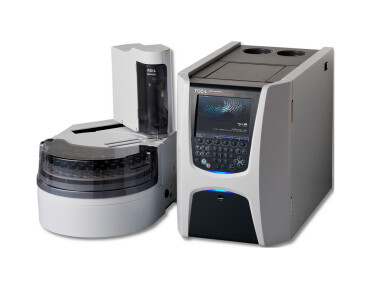Laboratory Products
Why Do We Crave Sugar?
Jun 13 2018
It's no secret that sugar is addictive, with studies revealing that it affects brain pathways in the same was as addictive drugs like cocaine and heroin. Now, a new study is confronting the addiction to sugar head on and suggesting that a few neural tweaks could be all it takes to quash cravings.
Fronted by researchers from Columbia University’s Zuckerman Institute, the study explored how the brain identifies tastes as sweet or bitter and in turn, whether they're perceived as nasty or nice. By strategically rewiring neural pathways they were then able to eliminate sugar cravings in mice.
Switching off the sweet tooth
They started by identifying two specific regions of the brain which actively respond to both sweet and bitter taste sensations. Using sophisticated imaging techniques they then discovered that neurons from the insular cortex interconnect with multiple different areas of the brain, including the amygdala. Shaped like an almond, the amygdala processes emotions and plays an important role in determining if the brain is sent sweet or bitter signals. Interestingly, they also noted that signals are sent to different parts of the amygdala depending on whether a substance is sweet or bitter.
Armed with this knowledge, the researchers genetically modified mice so that amygdala neurons responded to light. Using implanted optical fibres, they were able to manually trigger both sweet and bitter regions of the amygdala. Furthermore, they were able to manipulate the routes so that mice experienced sweet or bitter sensations when consuming water, and even switch off responses completely.
An innate desire for sweet
They also placed the mice in a network of rooms, each associated with a sweet or bitter sensation. They noted that the mice lingered in the rooms where they experienced sweet sensations and avoided those associated with bitter.
“The very concept of sweet, the very word sweet, implies this goodness, this reward, this craving that we link to it, and similarly bitter on the other side has an immediate meaning to it," explains Charles Zuker, lead author of the research. "So we wanted to know, how does the brain encode meaning on sensory experience?”
While the study hasn't progressed to human trials, Zuker maintains that there could be parallels between the brains of mice and humans. He predicts that the study could play an important role in helping develop new ways to treat and manage sugar cravings, as well as address other eating disorders.
Animal physiology is fascinating and often draws many parallels with the human body. For a closer look at the latest insights don't miss 'Investigating the Thermal Physiology of Birds and Mammals'.
Digital Edition
ILM 49.5 July
July 2024
Chromatography Articles - Understanding PFAS: Analysis and Implications Mass Spectrometry & Spectroscopy Articles - MS detection of Alzheimer’s blood-based biomarkers LIMS - Essent...
View all digital editions
Events
ACS National Meeting - Fall 2024
Aug 18 2024 Denver, CO, USA
Aug 25 2024 Copenhagen, Denmark
Aug 28 2024 Phnom Penh, Cambodia
Sep 04 2024 Chiba, Tokyo, Japan
Sep 04 2024 University of Warwick, Coventry, UK


















